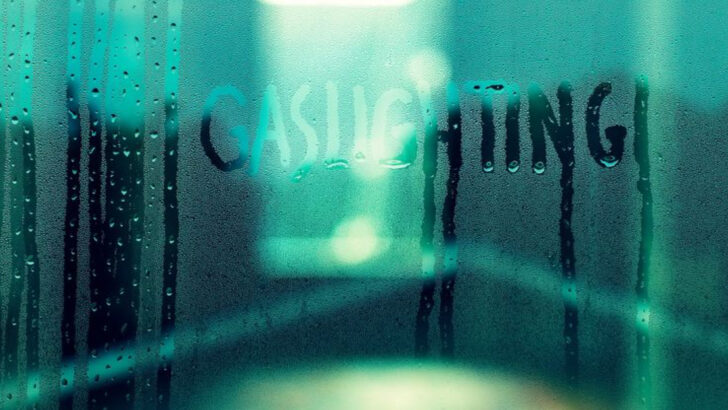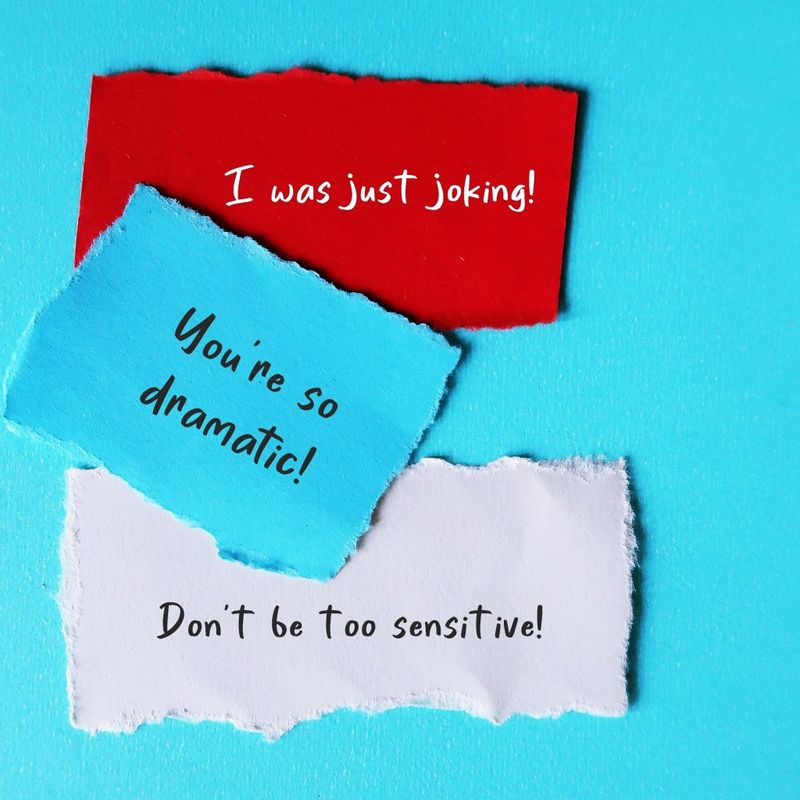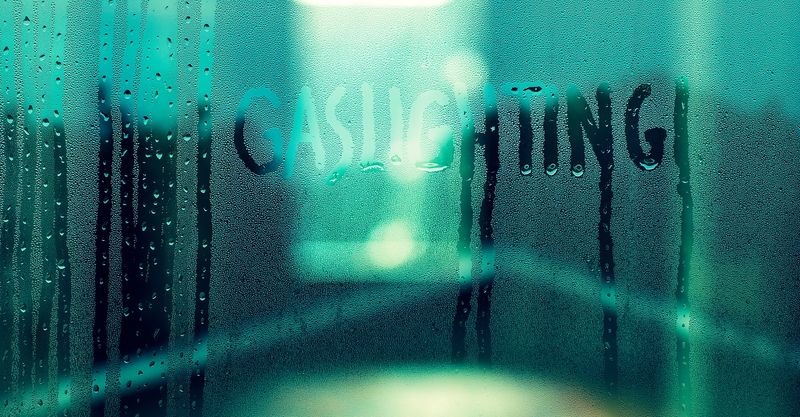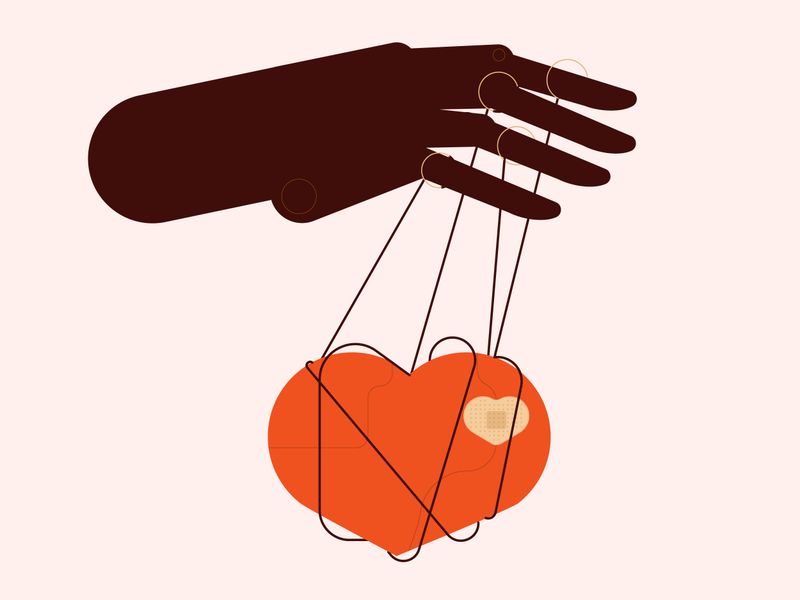You tell yourself, “Maybe I’m just sensitive.” You wonder when you started feeling so small, so unsure. Some days, the world feels upside down, and you can’t put your finger on why. I’ve been there.
Gaslighting isn’t always loud—sometimes it sneaks in so quietly, you don’t spot it until you’re questioning your very sense of self.
This list isn’t to scare you, or to make you doubt every relationship. It’s here so you can see what’s real, especially the things that made you feel crazy for even noticing. If you recognize yourself in any of these, know this: you’re not alone, and you’re not imagining things.
1. Frequent Self-Doubt
You know that feeling when you leave a room and immediately second-guess what you just said? It’s like your own thoughts turn against you. You replay conversations, picking apart every word, convinced you messed up or remembered wrong.
It’s not just nerves. Sometimes, when you start doubting your every move, it’s because someone keeps planting those seeds. Gaslighting works best when you start questioning your own reality—so you lose trust in yourself. The more you doubt, the more power someone else gets over your choices.
It’s almost like emotional vertigo. You think, “Maybe I’m overreacting.” But you weren’t always this hesitant. If you catch yourself apologizing for things you aren’t even sure happened, that’s not just insecurity—it’s a warning sign that someone’s shaking your sense of truth.
2. Constant Apologizing
Ever pause mid-sentence to say sorry—just in case? I used to apologize for breathing too loudly. That’s how deep it can cut.
When you’re gaslit, “sorry” becomes a reflex. You apologize for your feelings, your needs, even your existence. It’s like you’re walking on broken glass, tiptoeing around someone’s moods so you don’t get blamed for something that isn’t yours.
You might even start apologizing before anyone’s upset, almost as if you’re trying to prevent a disaster before it happens. If you notice your language is full of “sorry” for things you didn’t do or things you can’t control, ask yourself why. That knee-jerk apology is a leftover bruise from someone making you feel like you’re always wrong.
3. Trivializing Your Feelings
“You’re too sensitive.” How many times have you heard that and wanted to shrink? Gaslighting loves to masquerade as reason, making you believe your feelings are an overreaction or just inconvenient.
You start to question if you’re dramatic, or if your emotional pain is just a nuisance. They act like you’re a burden for feeling anything at all, like your heart takes up too much space. Little by little, you learn to swallow your hurt instead of speaking it out loud.
Each time someone tells you “it’s not a big deal” when it feels huge to you, it chips away at your confidence to speak up. Eventually, you might stop sharing your feelings altogether. That silence? It’s not peace—it’s survival.
4. Proiezione
The wildest thing is when someone accuses you of exactly what they’re doing. You get called paranoid for asking normal questions, while they’re the one hiding things. It’s like living in a funhouse mirror—nothing reflects the truth, only their twisted version of it.
Projection isn’t just a defense; it’s a way to keep you off-balance. You feel guilty for actions you never took. Suddenly, you’re the bad guy in a story you didn’t write.
The more they throw their flaws at you, the less space you have to even notice their real behavior. Guilt weighs you down, and confusion sets up camp. It’s exhausting, being blamed for someone else’s mess.
5. Contradiction
Ever try to pin someone down on what they said, only for them to twist it? You remember something one way; they swear it never happened. It’s like reality keeps slipping through your fingers.
Gaslighters are masters at contradiction. One minute, they promise support. The next, they say you made it up. You start to worry your memory is broken, that you just can’t trust your own mind.
The confusion isn’t accidental—it’s a tactic. When facts are always shifting, you lose your anchor. If you feel like you’re constantly defending what you know is true, ask yourself who benefits from all the confusion.
6. Isolation
The world gets smaller when you’re being isolated. Suddenly, your friends seem distant or “too busy,” and family gatherings feel loaded with tension. You wonder when you last shared a real laugh with someone who wasn’t your partner.
Isolation isn’t always dramatic—it can be slow, like a dimmer switch turning down your social life. A gaslighter might say things like, “They don’t really care about you,” or “You’re better off without them.” The more alone you feel, the easier you are to control.
Pretty soon, you’re talking less, seeing people less, and relying more on the person who’s cutting you off. If your world feels like it’s shrinking, it’s a big red flag. Connection isn’t just comfort—it’s protection.
7. Withholding Information
Ever feel like you’re always the last to know? Maybe you find out about important plans too late, or discover missing details only after they matter. Withholding information isn’t an accident—it’s a subtle power move.
A gaslighter might “forget” to tell you something vital, then act like you’re overreacting when you get upset. It keeps you off-balance, unsure, and always a step behind. You question if you’re disorganized, when really, someone’s hiding the map.
If you’re constantly left out of the loop—professionally or personally—it drains your confidence. You start to see yourself as forgetful or unworthy of being included, when really, someone else keeps pulling the strings.
8. Denial of Previous Agreements
You remember the promises, right down to the way they looked when they said it. But now, they act like it never happened. You even have the sticky note to prove it, and still, they shrug it off.
It’s more than forgetfulness; it’s a refusal to honor reality. Gaslighters deny agreements, no matter how much evidence you gather. Each time you’re told, “That’s not what I said,” or, “You misunderstood,” something unravels inside.
Your trust begins to erode—not just in them, but in your own memory. You feel embarrassed for keeping proof, but you keep doing it anyway. That need to collect receipts? It isn’t paranoia. It’s self-preservation.
9. Gaslighting by Proxy
It hits hardest when other people join in. Suddenly, friends or family look at you differently, repeating things you know aren’t true. That’s gaslighting by proxy—a group effort to make you doubt yourself.
The gaslighter pulls others into their story, painting you as unreliable or unstable. You start hearing their words echoed by people you once trusted. Each sideways glance or loaded question feels like another wall going up.
What hurts most is how alone you feel, even in a room full of people. If you sense your reputation shifting, or notice people treating you with suspicion, step back. Who’s really setting the narrative?
10. Using Your Weaknesses Against You
You trusted them enough to share your scars—childhood fears, insecurities, dreams you never told anyone else. Then, one day, those secrets show up as ammunition during a fight. It catches you off guard, every time.
When someone uses your soft spots against you, it’s a deep betrayal. They might poke at your weight, your anxiety, or things you wish you could change about yourself. Instead of comfort, you get reminders of your worst days.
You start to wish you’d never opened up at all. But your vulnerability isn’t the problem—their cruelty is. If your sensitivity becomes a weapon in someone else’s hands, something’s wrong.
11. Inconsistency Between Words and Actions
Remember promises that never materialized? You listen to sweet words, but they don’t match what actually happens. It’s like hearing a love song and then standing in the rain, waiting to be picked up.
Gaslighting thrives on this disconnect. Someone assures you of their love, their support, or their plans—and then leaves you stranded. You start to blame yourself for expecting follow-through, like the disappointment is your fault.
Your trust gets tangled up in their excuses. If the gap between words and actions keeps growing, don’t ignore it. Consistency isn’t too much to ask; it’s the least anyone deserves.
12. Passive-Aggressive Comments
“Nice of you to finally show up.” It sounds innocent, but it lands with a thud. Passive-aggression is slippery—never quite enough to call out, but always enough to sting.
Gaslighting uses these comments as tiny pinpricks, wearing you down. You second-guess if you’re too sensitive, or if you just imagined the slight. The uncertainty can be worse than open hostility.
Every time you let it slide, you teach yourself not to make a fuss. But those barbs add up, leaving you raw. If certain remarks always make your stomach twist, it’s a sign you’re not imagining things.
13. Alternating Between Lies and Praise
Some days, you’re the best thing in their world; others, you’re the punchline. Gaslighting often mixes praise with put-downs, keeping you desperate for approval. It’s a rollercoaster of emotions, and you never know which version you’ll get.
One moment, they shower you with affection or gifts. The next, they cut you down—maybe with a tiny dig, maybe with a joke at your expense. You’re left chasing those good moments, wondering what you did wrong to make them disappear.
It’s not love if you have to earn it over and over. That unpredictability isn’t exciting—it’s exhausting. If kindness comes with conditions, question what’s really going on.
14. Accusing You of Their Own Faults
Projection’s evil twin is blame-shifting. Ever been accused of something so outlandish, it left you speechless? Maybe you’re called a liar, a cheat, or unreliable, while all the evidence points the other way.
The goal is simple: keep the spotlight off their own behavior, and keep you defending yourself. You spend more energy trying to prove your innocence than noticing the real problem. Innocence becomes your burden, not theirs.
This isn’t just an argument—it’s a pattern. If you’re always the villain in their stories, step back and ask yourself who benefits from the distraction. Sometimes, the loudest accuser has the most to hide.
15. Constant Criticism
Criticism isn’t always helpful, and it’s never loving when it’s constant. Maybe you can’t remember the last time you did something “right.” Every effort gets picked apart, every flaw magnified.
Over time, you shrink. You stop trying new things because it’s safer to stay invisible. You start to wonder if you’re really as incapable as you’re being told.
But this isn’t about your abilities—it’s about someone needing to feel superior. If life with a partner, boss, or friend feels like a never-ending performance review, it’s not you. Relentless criticism is a mask for their own insecurity, not a reflection of your worth.
















